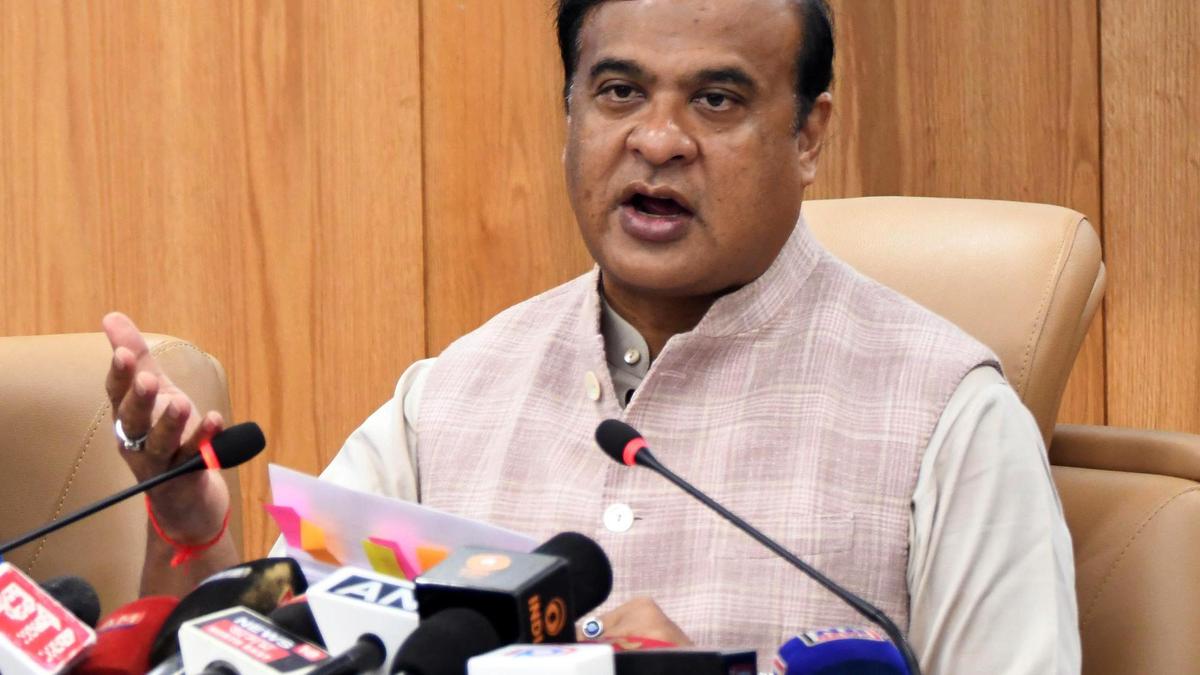Assam Chief Minister Himanta Biswa Sarma has announced a sweeping legislative package aimed at what the state government calls “love jihad” and polygamy — measures that dramatically expand the scope of criminal liability in matters of marriage and faith. The bills, set to be introduced in the Assam Legislative Assembly session beginning November 25, 2025, mark one of the most significant and contentious legal moves under Sarma’s tenure, extending penalties not only to accused individuals but also to their parents.
As reported by Hindustan Times, speaking at a women’s empowerment event in Lakhipur, Cachar district, on October 25, the Chief Minister said, “The parents of the male accused in love-jihad cases will also be liable for arrest under the new law. We want to save our women from traps where they become victims of love-jihad and polygamy. We are bringing stringent laws.”
Under the proposed legislation, if a minor girl is lured into an interfaith marriage, both the man and his parents could face multi-year imprisonment. This provision — introducing familial culpability — is unprecedented in any existing anti-conversion law enacted by other states.
According to Times of India, addressing another gathering in Silchar on October 24, Sarma also announced a ban on polygamy, warning that those who “marry more than one woman” would face up to seven years’ imprisonment. “Many men cause immense harm to women by marrying multiple times,” Sarma said, adding that the move sought to “protect the dignity of women and ensure uniformity of law.”
Earlier, on October 22, speaking to reporters in Nagaon, the Chief Minister described the upcoming Assembly session as “historic”, confirming that the government will table several “important and transformative bills” — including those on “love jihad”, polygamy, preservation of Satras (Vaishnavite monasteries), and land rights for tea tribes, as reported by Indian Express. He said that the detailed provisions would be disclosed after Cabinet approval.
Cultural preservation and legislative agenda
Alongside the anti-conversion and polygamy bills, the government will also introduce the Assam Satra Preservation and Development Board Bill, 2025, which was approved by the Cabinet on October 16. The bill aims to protect Vaishnavite monasteries (Satras) — the spiritual and cultural institutions established by the 15th-century saint Srimanta Sankardeva — from alleged encroachment and ensure state-supported preservation, as per LawBeat.
Sarma’s proposed package comes ahead of the 2026 state elections and is seen as part of his government’s broader agenda to “institutionalise” an Assam-centric, almost “majoritarian” cultural and moral order. The Chief Minister has previously said that banning polygamy and “deceitful religious conversions” is part of Assam’s move towards a Uniform Civil Code (UCC)-like framework, echoing the recommendations of the Justice (Retd.) Rumi Kumari Phukan Committee, which examined the legal viability of such a measure.
In recent speeches, Sarma has also linked population control to welfare eligibility, stating, “Some people say that Allah gives them children, so they cannot stop giving birth. I say, give birth as many as you wish, but do not expect government help to raise them or to send them to government schools,” as per Hindustan Times.
The Chief Minister also reacted sharply to comments by activist Medha Patkar, who had criticised the state’s eviction drives and questioned the investigation into singer Zubeen Garg’s death, saying: “Outsiders do not understand the suffering of the indigenous people of Assam. One community is trying to grab our land and take away our sisters through tricks like love-jihad. If Medha Patkar comes here to protest against evictions, we will take strict action.”
(Hindustan Times)
The ‘Love Jihad’ narrative and legal concerns
The term “love jihad” first appeared in 2009 in publications of the Sanatan Prabhat and Hindu Janajagruti Samiti, before being amplified by the Rashtriya Swayamsevak Sangh (RSS) and Vishwa Hindu Parishad (VHP). It gained political traction after 2014, when several BJP-ruled states — including Uttar Pradesh, Madhya Pradesh, Gujarat, and Haryana — enacted laws criminalizing religious conversions through marriage or deception.
However, Assam’s proposal represents a radical expansion of this framework. By extending culpability to the accused’s parents, it effectively criminalizes familial relationships and transforms allegations of interfaith marriage into matters of collective criminal liability.
Citizens for Justice and Peace, who is also a lead petitioner in challenging the said state anti-conversion laws in the Supreme Court, have warned that such laws are susceptible to misuse, enabling police overreach, community vigilantism, and communal profiling. As The Wire reported, there is no official data to substantiate claims of organized “love jihad” conspiracies, and in several states, arrests under such laws have disproportionately targeted Muslim men in consensual relationships.
The November 25 Assembly session, which Sarma has called “historic,” will be the last major sitting before the 2026 elections. Observers view it as a defining moment that could reshape Assam’s social and legal order — intertwining morality, religion, and state power under the banner of “protecting women” and “preserving indigenous identity.”
If passed, Assam’s “love jihad” and polygamy bills could become among the most far-reaching personal law interventions in independent India, setting a precedent for family liability in interfaith and marital cases, and testing the boundaries between individual freedom, faith, and the expanding reach of the state.
Related:
Gujarat High Court Widened Anti-Conversion Law: ‘Victims’ can be prosecuted as offenders
SC issues notice to 5 states in CJP’s renewed challenge to anti-conversion laws

